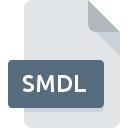
SMDL File Extension
SQL Server Updated Model
-
DeveloperMicrosoft Corporation
-
Category
-
Popularity0 ( votes)
What is SMDL file?
SMDL filename suffix is mostly used for SQL Server Updated Model files. SQL Server Updated Model format was developed by Microsoft Corporation. SMDL files are supported by software applications available for devices running Windows. Files with SMDL extension are categorized as Misc Files files. The Misc Files subset comprises 6033 various file formats. The most popular software that supports SMDL files is Microsoft SQL Server. On the official website of Microsoft Corporation developer not only will you find detailed information about theMicrosoft SQL Server software, but also about SMDL and other supported file formats.
Programs which support SMDL file extension
The following listing features SMDL-compatible programs. SMDL files can be encountered on all system platforms, including mobile, yet there is no guarantee each will properly support such files.
How to open file with SMDL extension?
Being unable to open files with SMDL extension can be have various origins. On the bright side, the most encountered issues pertaining to SQL Server Updated Model files aren’t complex. In most cases they can be addressed swiftly and effectively without assistance from a specialist. We have prepared a listing of which will help you resolve your problems with SMDL files.
Step 1. Get the Microsoft SQL Server
 Problems with opening and working with SMDL files are most probably having to do with no proper software compatible with SMDL files being present on your machine. The solution to this problem is very simple. Download Microsoft SQL Server and install it on your device. The full list of programs grouped by operating systems can be found above. If you want to download Microsoft SQL Server installer in the most secured manner, we suggest you visit Microsoft Corporation website and download from their official repositories.
Problems with opening and working with SMDL files are most probably having to do with no proper software compatible with SMDL files being present on your machine. The solution to this problem is very simple. Download Microsoft SQL Server and install it on your device. The full list of programs grouped by operating systems can be found above. If you want to download Microsoft SQL Server installer in the most secured manner, we suggest you visit Microsoft Corporation website and download from their official repositories.
Step 2. Verify the you have the latest version of Microsoft SQL Server
 If you already have Microsoft SQL Server installed on your systems and SMDL files are still not opened properly, check if you have the latest version of the software. It may also happen that software creators by updating their applications add compatibility with other, newer file formats. The reason that Microsoft SQL Server cannot handle files with SMDL may be that the software is outdated. All of the file formats that were handled just fine by the previous versions of given program should be also possible to open using Microsoft SQL Server.
If you already have Microsoft SQL Server installed on your systems and SMDL files are still not opened properly, check if you have the latest version of the software. It may also happen that software creators by updating their applications add compatibility with other, newer file formats. The reason that Microsoft SQL Server cannot handle files with SMDL may be that the software is outdated. All of the file formats that were handled just fine by the previous versions of given program should be also possible to open using Microsoft SQL Server.
Step 3. Associate SQL Server Updated Model files with Microsoft SQL Server
After installing Microsoft SQL Server (the most recent version) make sure that it is set as the default application to open SMDL files. The method is quite simple and varies little across operating systems.

Change the default application in Windows
- Choose the entry from the file menu accessed by right-mouse clicking on the SMDL file
- Click and then select option
- The last step is to select option supply the directory path to the folder where Microsoft SQL Server is installed. Now all that is left is to confirm your choice by selecting Always use this app to open SMDL files and clicking .

Change the default application in Mac OS
- Right-click the SMDL file and select
- Proceed to the section. If its closed, click the title to access available options
- Select Microsoft SQL Server and click
- If you followed the previous steps a message should appear: This change will be applied to all files with SMDL extension. Next, click the button to finalize the process.
Step 4. Ensure that the SMDL file is complete and free of errors
Should the problem still occur after following steps 1-3, check if the SMDL file is valid. It is probable that the file is corrupted and thus cannot be accessed.

1. Check the SMDL file for viruses or malware
If the file is infected, the malware that resides in the SMDL file hinders attempts to open it. It is advised to scan the system for viruses and malware as soon as possible or use an online antivirus scanner. If the SMDL file is indeed infected follow the instructions below.
2. Check whether the file is corrupted or damaged
If the SMDL file was sent to you by someone else, ask this person to resend the file to you. During the copy process of the file errors may occurred rendering the file incomplete or corrupted. This could be the source of encountered problems with the file. If the SMDL file has been downloaded from the internet only partially, try to redownload it.
3. Check if the user that you are logged as has administrative privileges.
Sometimes in order to access files user need to have administrative privileges. Log out of your current account and log in to an account with sufficient access privileges. Then open the SQL Server Updated Model file.
4. Make sure that the system has sufficient resources to run Microsoft SQL Server
If the systems has insufficient resources to open SMDL files, try closing all currently running applications and try again.
5. Check if you have the latest updates to the operating system and drivers
Up-to-date system and drivers not only makes your computer more secure, but also may solve problems with SQL Server Updated Model file. It may be the case that the SMDL files work properly with updated software that addresses some system bugs.
Do you want to help?
If you have additional information about the SMDL file, we will be grateful if you share it with our users. To do this, use the form here and send us your information on SMDL file.

 Windows
Windows 
